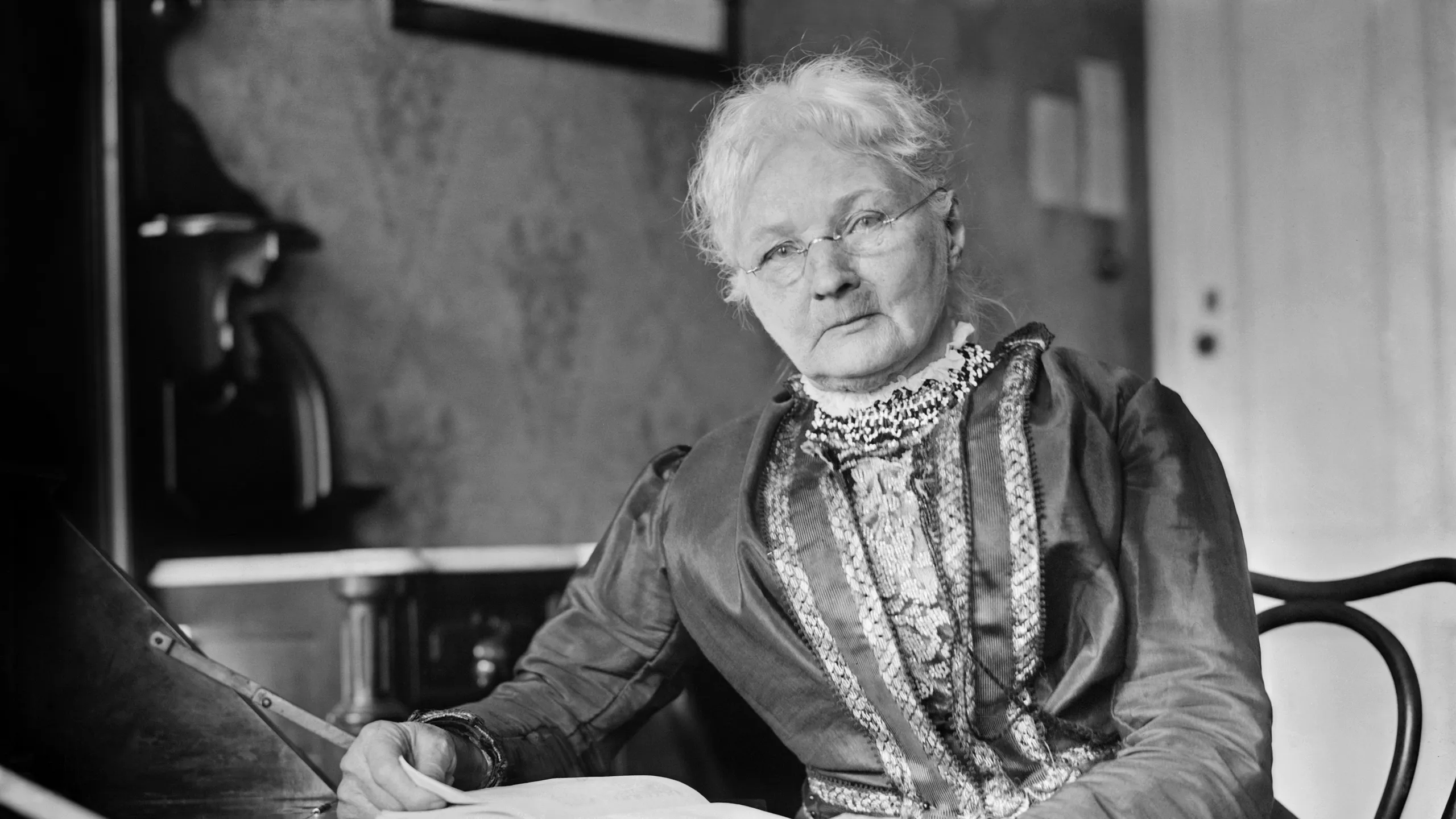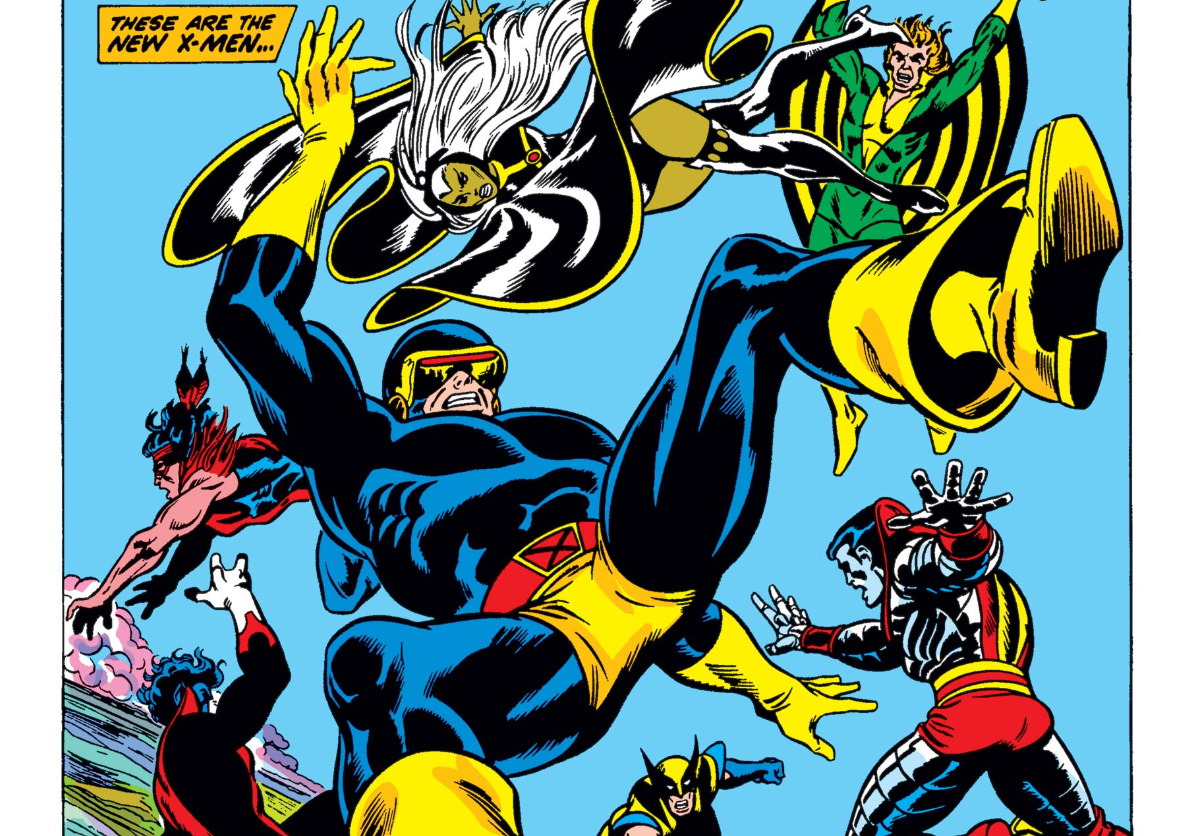Ptolemy’s Gate: A Good Finish to a Great Series
YA Revisited

The final entry in the trilogy, Ptolemy's Gate is a continuation of the Bartimaeus series’ staple wit and over the top action, and the culmination of the growing class struggles in author Jonathan Stroud’s fictional British Empire. The book brings together an impressive number of elements from the established world and is overall comparable to the high quality of the previous lauded entries. However, the story comes across as a bit truncated, and a few questionable character decisions leave the reader disconnected and potentially less than satisfied.
The State of Things
Similar to the time jump between books one and two, the main narrative of Ptolemy’s Gate picks up a few years after the conclusion of the previous novel, The Golem’s Eye. There are more frequent breaks in the timeline of this entry than those prior, which is done to allow for the story to transition into ancient Alexandria, the secondary setting. Bartimaeus and his past exploits in Egypt have appeared throughout the series, but this book ties the ancient adventures into the present, both thematically and in direct interaction with the current plot. Through the separate times, the criticism and exploration of politics and power continues full steam, with only brief respites to build character and propel the narrative forward.
The start of Ptolemy’s Gate sees the three protagonists of Kitty, Bartimaeus, and Nathaniel floundering in the roles in which they had been dealt. Continuing his climb in the world of politics, Nathaniel has risen to be on the highest magician council that oversees the British Empire. Having reached such a prestigious position, one which he had fantasized and strived for his entire life, the transparent corruption and limitations of the vaunted magician-driven government weigh on him daily.
In a flipped situation Bartimaeus has reached new lows, as the djinni is struggling to even remain together mentally or physically as Nathaniel has kept him bound to earth for years, in a continuous strain since the close of the last book. The two rarely converse aside from the brief exchange of orders from master to slave, with Nathaniel’s attention being primarily focused on his job or commanding a whole horde of other djinni alongside the titular demon.
The British magicians are concentrated on the war with America, which had been briefly teased previously in the series. Nathaniel is overseeing propaganda, and he is mainly trying to keep the masses of commoners placated with the war effort, though his job spikes in difficulty when a draft is instituted. The conflict of the war in America is relatively weak right from the start, as there is no indication that the novel has the motivation or space to explore another setting of that magnitude. Most readers will recognize early on that while the war is central to the current world and frequently on the minds of characters, it is not the conflict that will be directly dealt with in these pages. Chapters from the perspective of Kitty exemplify the sentiment.
After the incident with the golem from the previous book, and the dissipation of the rebel group to which she belonged, Kitty began bartending at a radical pub, and gave up on the direct acts of revolution in which she used to engage. Her fervor for change does not diminish during this time, though her tactics are forced to shift dramatically. Kitty could have fostered a fear of working with others, after her previous betrayal, but as a commoner she is forced to take any path forward she can find. For her, this actually involves studying and training under a sympathetic magician, in an attempt to summon Bartimaeus herself.
Kitty is eventually successful at summoning Bartimaeus and their newfound connection is key to the escalation in pushing established magical boundaries. She learns alongside the reader that trust and vulnerability are actually very important to the beings commonly referred to as demons. If a magician can manage to give power to the djinni, Bartimaeus hints that there is no limit to the extent of their combined abilities.
Nesting Dolls of Conflict
The novel builds three different conflicts, each spinning off from the previous and adding to the overall intensity and scope of the final struggle. Building behind the scenes in previous entries and continuing to approach the foreground, is the ongoing war with America. Thematically mirroring the American Revolution, the foreign war showcases the British empire’s slipping grip of power across the world. The high and mighty magicians are disconnected from the frontlines, and the focus of the government seems to be more concerned with spinning propaganda to the public, as opposed to putting in effort to win the war.
While the military conflict works well to widen the world, it is second in priority to the growing disorder within the nation as the commoners become less interested in a foreign war. The struggle to retain order and trust of the public continues to reveal the magician government to be careerist hacks, with each one deferring completely to any other with an inkling of more power. The obvious result is a collection of bumbling opportunists and the occasional naive overachiever, which is the role Nathaniel falls into. He is seen as talented and has garnered respect, but even in his high position the magician is still viewed as being a bit over his head at best and a complete pawn at worst. He is generally not viewed as the most connected or threatening, which is exactly what allows him to witness the rise of the next major conflict firsthand.
While Nathaniel is preoccupied with the foreign war professionally, he builds a personal relationship with the playwright Quentin Makepeace. The theater celebrity is nothing but harmless entertainment on the surface, but reveals himself to be a more than formidable threat for the bumbling bureaucrats. In a particularly fun segment, Makepeace takes advantage of the traditional decorum and assumed safety of the theater to launch a devastating coup against the highest levels of the government. The actor turned wannabe autocrat utilizes a magical technique that involves the djinn inhabiting the body of the magician. Makepeace plans to dominate the will of the djinn and wield its powers to devastating effect.
It’s a stark reflection of reality as a popular figure identifies real issues with those in power and successfully topples them, only to fill the vacuum with greater dangers and increased incompetence. Makepeace’s gambit to overpower the djinni he summoned fails and soon many of the magicians are subjugated and replaced within their own bodies by djinn. Ironically it is an obvious outcome that likely could have been predicted by the majority of the elite magicians that Makepeace outsmarted in his coup.
The rise of the djinn quickly snowballs into the final and main conflict of the novel, as the djinn begin to systematically force the magicians to become vessels for others of their kind. From a narrative perspective this is natural and pays off a lot of the implied threats that had been hinted at from the beginning of the series. Some may not feel overly enthusiastic at the uniform characterization of all the djinn, besides Bartimaeus, as bloodthirsty unempathetic monsters, even if their rage is justified. It beggars belief that only a single djinni would have any humane characteristics, though in some ways the so-called demons act in line with how humans in their situation would. However, by creating a bigger, badder evil than the oppressive system orchestrated by the magicians, which had been examined thoroughly over the course of the past two books, the series nearly shirks a satisfying conclusion.
Finale
Each entry in the original Bartimaeus Trilogy feels cohesive to itself and a part of a larger tale. Ptolemy’s Gate is clearly the bookend of the overarching story and works well in that capacity, but the final novel in the series is not as well packaged in and of itself as the others. Whether that is a result of the novel containing the endpoints of some predictable arcs or a legitimate lacking in the storytelling may be up to the individual reader.
The characters of Nathaniel and Bartimaeus are in a weird spot throughout the story. With flashbacks to ancient Alexandria and callbacks to the first book, there is an amount of ground setting that feels quite long in the tooth, especially if the reader has just recently experienced the previous entries. In conjunction, there is not much of a twist or surprise development in either of the original protagonists, with both revealing an underlying nobility despite their less than savory acts and words. The plotlines for these two are clever and enjoyable, but they are clearly not the focus of passion at this stage in the project.
Kitty Jones retains the prominent position in the spotlight, which she had garnered in the previous book. However, her motivations become muddied and she finishes the series in a role that does not seem natural. From the beginning of the series, there has been a background development of understanding Bartimaeus’ relationship with the magician of antiquity, Ptolemy. The djinni consistently wears Ptolemy’s guise on earth, and clearly harbors an unusual affection for his ostensible master. There is a sense that Nathaniel is mirroring Ptolemy, and Bartimaeus even comments as such, but Kitty shares the role to a notable degree.
In order to unite Bartimaeus and Nathaniel for the climactic battle, Kitty embarks on a harrowing journey to The Other Place, where the djinn naturally reside, via the technique developed by Ptolemy. This involves putting her life at the mercy of Bartimaeus in a display of trust and vulnerability. Her actions allow her to rally Bartimaeus and Nathaniel, and actually combine the magician and djinn into an even more powerful entity. From there they engage the rogue djinn in a final fight alongside the commoners and remaining magicians, which concludes with Nathaniel’s noble sacrifice, in the vein of Ptolemy’s last actions, and the defeat of the conquering djinn.
Some may find the endings for both Kitty and Nathaniel to be slightly unearned or unsatisfying. After the final fight there is a short sequence showcasing the aftermath, with Kitty rising to an intermediary position between magicians and commoners, and Nathaniel an honored hero. Kitty plans to go to America, mostly because she essentially has no remaining personal ties in Europe, besides her friend Jacob who gets a mention in passing.
If the ending was swapped, with Kitty, the commoner, a hero of the people and Nathaniel, the highest ranked magician remaining, a sympathizer of the commoners, there is a slight subversion, and more weight to the conclusion because of it. There is a lot that goes into ending a character arc, and obviously this criticism comes down a bit to taste, but right at the end it felt as though Nathaniel usurped a leading role that had been building for Kitty, from a more meta perspective. If there were a continuation of Kitty’s character in any way, via another entry or even series, then this misstep might be completely solved.
The nitpicking of the finale may point to the overall high quality of the novel. While I prefer the other entries to a degree, there is no good reason to skip Ptolemy’s Gate as a reader who found great enjoyment in the other two books. Personally this one gets stuck a bit in the weeds of the logic and system of magic at times, but plenty of readers will find great enjoyment in the associated building complexity and revelations. The commentary on the rise, maintaining, and fall of empires continues to be as cutting and clever as ever, but is unfortunately watered down by the many moving plot parts and the purely fictional elements in particular.
The final entry in the Bartimaeus trilogy may be the weakest, but the series is top notch and well worth a read by anyone interested in British magicians, or fiction in general. The underlying themes of revolution, populism, and nationalism, are clear and present, but in no way hamfisted or awkward, as can be common with metaphorical depictions of this kind. As easy to read as it is to recommend, revisiting the Bartimaeus Trilogy revealed it again, as a truly worthwhile fantasy series.
Citation Station
- Ptolemy’s Gate. Written by Jonathan Stroud. Cover Art by Melvyn Grant.
- The Golem’s Eye. Written by Jonathan Stroud. Cover Art by Melvyn Grant.
- The Amulet of Samarkand. Written by Jonathan Stroud. Cover Art by Melvyn Grant.



